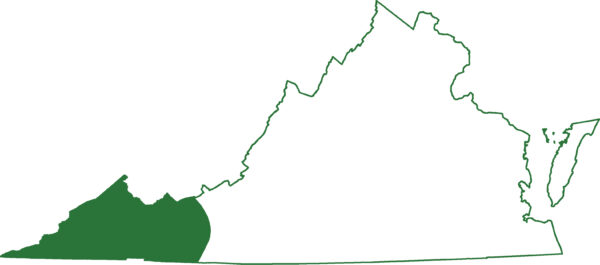Fact File
Scientific Name: Plethodon richmondi
Classification: Amphibian
Size: Up to 5.6 inches
Identifying Characteristics
An elongated salamander with relatively short legs. The tail of adults makes up about 50% of the total body length. Back is dark brown to black with varying amounts of white or brassy flecks. Belly is uniformly dark with light flecks on the throat.
Distribution:
Occurs west/southwest of the New River and in the southern Blue Ridge Mountains of southwestern Virginia. As its common name implies, this species inhabits forested ravines and hillsides and is strongly associated with rocky habitats.

Did You Know?
Ravine Salamanders will avoid an area if a Ring-Necked Snake is detected, which is a major predator.
Role in the Web of Life
Surface activity peaks in the spring and fall with individuals retiring to underground retreats during the hottest summer months. Mating occurs between November and May with females producing between 5–15 eggs in late spring. Hatching occurs in late summer or early fall. When uncovered, adults may assume a coiled position and lay motionless to avoid detection.
Conservation
Species appears to be secure in Virginia.
Last updated: July 18, 2024
The Virginia Department of Wildlife Resources Species Profile Database serves as a repository of information for Virginia’s fish and wildlife species. The database is managed and curated by the Wildlife Information and Environmental Services (WIES) program. Species profile data, distribution information, and photography is generated by the Virginia Department of Wildlife Resources, State and Federal agencies, Collection Permittees, and other trusted partners. This product is not suitable for legal, engineering, or surveying use. The Virginia Department of Wildlife Resources does not accept responsibility for any missing data, inaccuracies, or other errors which may exist. In accordance with the terms of service for this product, you agree to this disclaimer.

